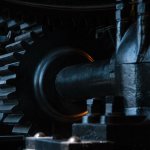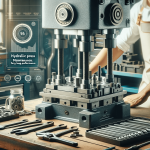The Future of Industrial Automation
With the ever-evolving technology, industrial automation is rapidly advancing and changing the way businesses and consumers operate. It has become an invaluable tool for many industries, providing improved efficiency, cost savings, and productivity. That’s why we’ve broken down how industrial automation has already changed processes and what to expect in the future.
Recent Impact on Manufacturing
Industrial automation is transforming the manufacturing process through efficiency, accuracy, and reliability. One of the major benefits is that it eliminates the potential for human error as it streamlines the process and catches potential problems before they occur. Automated systems are also programmed for more complex tasks such as monitoring and adjusting machines for optimal performance.
As it is able to increase production capacity and product quality, it helps businesses reduce costs that are typically associated with labor and materials. As technology advances, it’s also become easier for businesses to tailor the machines they use to their unique needs which leads to improved quality and fewer discarded products.
Automation has also revolutionized the way businesses manage their inventory. By automatically tracking inventory levels and ordering parts when they’re needed, companies can eliminate overstocking and under-ordering. This helps to maximize profits and optimize manufacturing schedules. Automation also makes it easier to manage production schedules and ensure that deadlines are met.
Future Trends in the Industry
As technology and business demands continue to evolve, the advances below are expected to help both businesses and its customers:
The Use of Robots
According to a recent Zion Market Research study, the future of manufacturing and industrial facilities is highly dependent on the use of robots. In 2021, the Industrial Robotics Market was worth around $41.7 billion and is estimated to grow to about $81.4 billion by 2028. This is driven by factors such as increased investment across industries and its growing prevalence in the electronics industry to build prototypes more quickly. These robots include collaborative robots, commercial drones, and customized robots.
Artificial Intelligence (AI) and Machine Learning
As access to data grows, AI and machine learning allows a computer’s system to recognize and infer logical conclusions that allows manufacturers to make data-driven decisions. This is expected to help businesses improve their manufacturing operations through things like inventory management, supply chain visibility, and asset tracking.
Impact on Attraction, Retention, and Training
According to a study by Deloitte, nearly half of the 4.6 million manufacturing jobs that will be needed over the next 10 years will not be filled. In order to fill this gap, automation tools like robots will continue to have an increased demand while also improving worker safety and taking on more physically taxing tasks.
Invest with Air & Hydraulic Equipment, Inc.
Since 1971, Air & Hydraulic Equipment, Inc. has been providing unsurpassed products, expertise, and value-added services to a vast customer base that relies on hydraulic, pneumatic, electric, and automation processes throughout Tennessee, North Georgia, and Southwest Virginia. Whether you’re new to industrial automation or looking to upgrade your existing equipment, we’re here to help.
Contact us today to learn more about our services.










